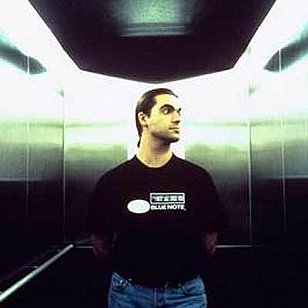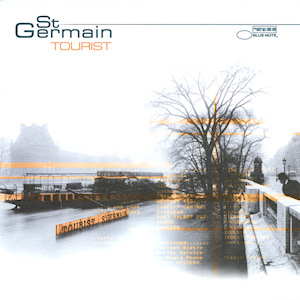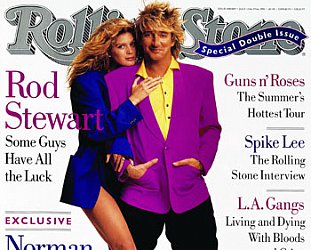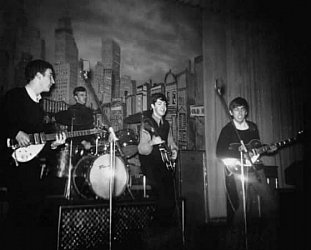Graham Reid | | 4 min read

Ludovic Navarre shakes his head, mystified when I mention the Shinjuku district of Tokyo. This French DJ, musician and producer who currently goes under the nom de disque St Germain has just come from Japan and I have second- guessed he might have raided record shops in fashionably hip Shinjuku as he has during his two-day stop in Auckland.
But no. Just saw the hotel in Japan, one interview after another, he says somewhat grimly.
That's what happens when your albums mix and match live musicians, cross between jazzy styles and reggae, pay homage to black artists and yet captivate cafe and club audiences for their cool beats.
Everyone wants a piece of you, just as they do here.
But it isn't easy for Navarre to offer himself up to journalists. He speaks very little English (and no Japanese) so our conversation about his excellent Tourist album, which followed 95's equally cross-genre success Boulevard and is possibly the most tasteful item in the New Zealand Top 20, is conducted through a translator.
At 30, Navarre has built an impressive track record in France. His discography lists releases under the names Sub System, Deep Side, Soofle, Modus Vivendi, Deep Contest and quite a few others before he settled on St Germain in 95 after encountering a jazz group in Saint Germain en Laye and asked them to realise his music for Boulevard.
That album has sold almost a quarter of a million copies and suddenly Navarre was a Name Player whose Alabama Blues single of 95 anticipated Moby's blues samples on Play.
That series of previous incarnations he explains as necessary because the audiences for various kinds of house have narrow tastes and don't move much beyond their preferred style.
DJs such as himself like all kinds of music but the audience doesn't travel with them on the journey. He wanted all the audiences to get together.
"I used all the names when I moved into different types of music. People categorise so much, producers move around more often than the public," he says with Gallic shrug of bemused frustration.
In that, St Germain was a major breakthrough because although he builds from a platform of being a DJ, it comes from live musicians and acknowledges sounds from the 60s and 70s while feeling entirely contemporary in outlook.
The group he used for both albums, he says, is highly versatile and that is the band he takes out live on the festival circuit around Europe.
"It's an eight or nine-piece band on stage and people are often surprised because they expect little more than a DJ, turntables and samples."
The lengthy gap between Boulevard and Tourist (on the prestigious Blue Note jazz label) was the result of a forced holiday when his former label wouldn't release him from his contract.
But the wait has been worth it: Tourist bristles with ideas taken from jazz history and with the reggae guitar of Ernest Ranglin thrown into sharp focus. The opener, a Brubeck-sounding rapid fire-percussion piece Rose Rouge with the repeated sample-hook "I want you to get together," has become a staple of clubs and cafes. While he uses samples sparingly he is amused by the suggestion that being on Blue Note gives him access to the jazz catalogue in the manner of US3.
While he uses samples sparingly he is amused by the suggestion that being on Blue Note gives him access to the jazz catalogue in the manner of US3.
"I'm a little bit more ambitious than that and prefer to use live musicians rather than just take a sample of them," he laughs. "But it is a pleasure to be on the same label as renown jazz musicians."
And that classic Blue Note sound has influenced him, although he concedes it is getting harder to recapture that warmth and closeness as studios become more complex and sophisticated.
His next project is producing an album for St Germain trumpeter Pascal Ohse, he expects to start a new album before the end of the year, and a world tour is scheduled for early next year. He is hopeful New Zealand will be part of it.
The success of St Germain has allowed to him to achieve what he wanted from the start: to bring different audiences together to appreciate "good music, no matter what people call it."
In that light, the sample pumping out of cafes and clubs these past few months now sounds like a mission statement: "I want you to get together."
And, under that banner of St Germain, house followers, acid jazz lovers, Blue Note aficionados and DJs have done just that.





post a comment